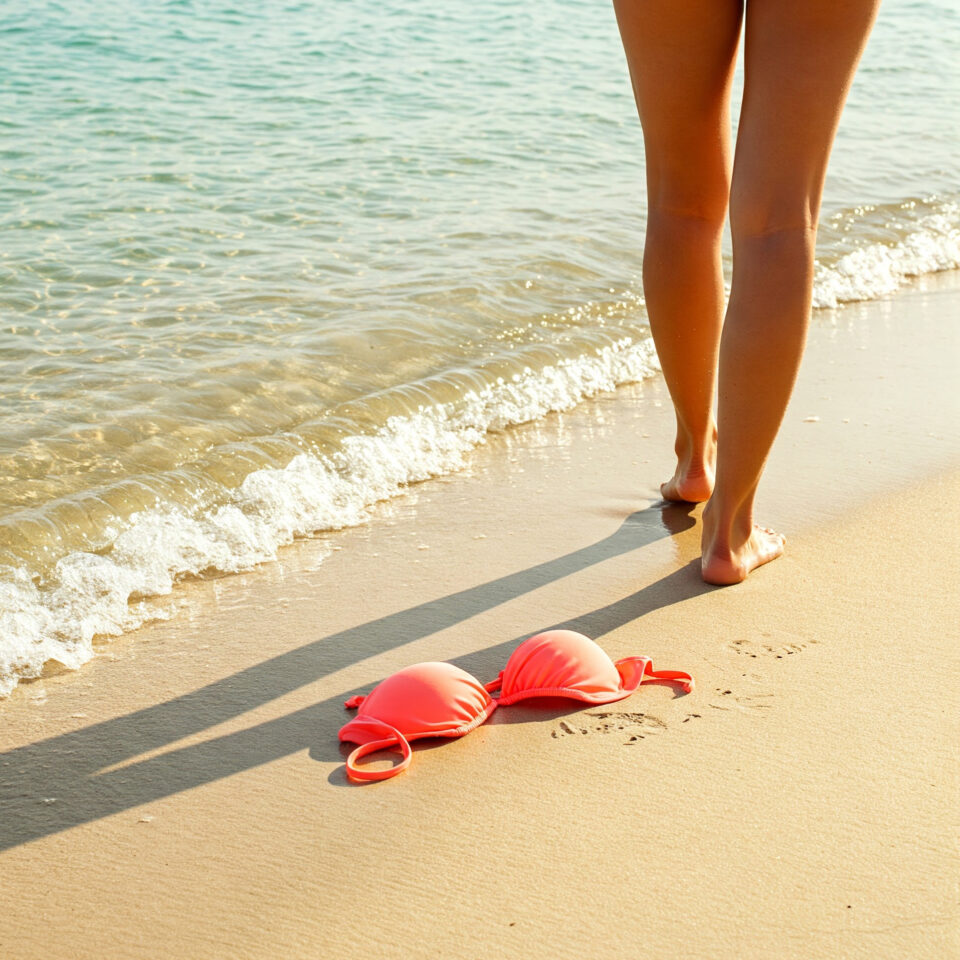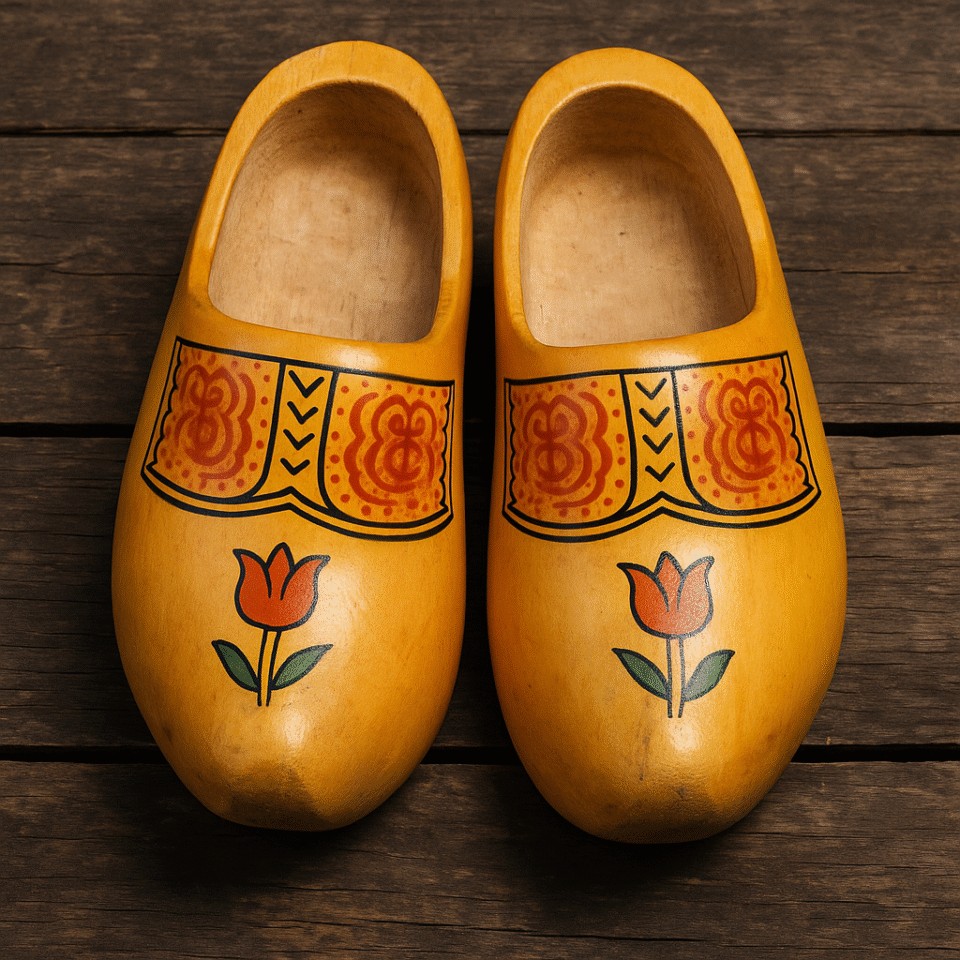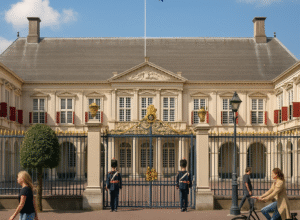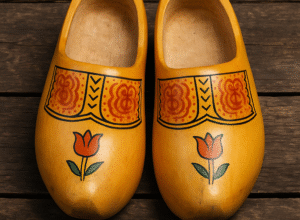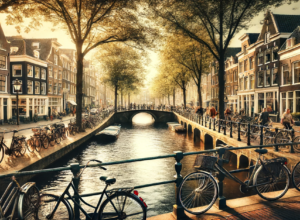Examining the surprising cultural divide between American modesty and Dutch pragmatism when it comes to the human body and what it reveals about both societies.
The Beach House Revelation: American Outrage vs. Dutch Nonchalance
I was enjoying a lazy summer afternoon at my favorite beach house—ironically named Naturel—along a stretch of Dutch coastline where nude sunbathing is commonplace. While scrolling through Facebook on my phone, I came across a post from a community group in my former American hometown. A father was expressing outrage that he had encountered a woman in a thong bikini at the local lake beach while with his teenage son. He lamented that the beach “no longer felt like a place for families” and was rallying others to contact the mayor about this supposed indecency.
Looking up from my phone, I counted at least a dozen completely nude sunbathers within eyesight—people of all ages, shapes, and sizes enjoying the sunshine without a second thought. The contrast was so stark I couldn’t help but laugh at the absurdity. Two partially visible buttocks had thrown this American man into a moral crisis, while here I sat surrounded by full nudity that nobody found remotely controversial.
This moment crystallized for me the profound difference between Dutch and American attitudes toward nudity—a difference rooted not just in legal frameworks but in deeply held cultural values about the human body, privacy, and sexuality. For Americans considering travel or relocation to the Netherlands, understanding this cultural gap is essential to avoiding shock and embracing the liberating aspects of Dutch culture.
Historical Context: How Dutch Attitudes Toward Nudity Evolved
The Netherlands’ comfortable relationship with nudity didn’t develop overnight. Following the sexual revolution of the 1960s and 70s, Dutch society took a notably different path than America. While both countries experienced significant social change, the Dutch “decoupled sex from marriage, but they didn’t decouple sex from love,” leading to a more pragmatic approach to bodies and sexuality without the strong associations with danger or moral degradation that persisted in American culture.
This perspective was eventually reflected in Dutch law. In 1986, with the help of the Dutch Naturist Federation, the Netherlands established legal protections for public nudity in designated areas, making it one of the few countries with explicit legal accommodation for naturism. This legal framework has fostered a culture where nudity is seen as a natural state rather than something inherently sexual or shameful.
Unlike American society, which often connects nudity with sexuality or immorality, Dutch culture approaches the naked body with remarkable pragmatism. This cultural divergence explains why Americans often experience culture shock when first encountering the casual Dutch attitude toward nudity in beaches, saunas, and even media.
The Naked Truth: Why Dutch Nudity Isn’t About Sex (An American’s Perspective)
Perhaps the most fundamental difference between Dutch and American perspectives on nudity is the automatic association many Americans make between nudity and sexuality. In the Netherlands, these concepts are much more separated, creating a cultural divide that affects everything from beach etiquette to gym experiences.
My own journey with Dutch sauna culture illustrates this point perfectly. For my first year living here, I avoided the sauna at my gym—terrified by the prospect of being nude around strangers, particularly women. The American in me couldn’t separate nudity from sexuality, making the idea uncomfortable and even embarrassing. This mental connection between nudity and sex is so deeply ingrained in American culture that breaking free from it required a complete mental reset.
When I finally gathered the courage to try it, the reality was eye-opening. Not only was it completely non-sexual, but people engage in normal, everyday conversations while entirely naked. Now I visit daily, comfortably chatting with other gym-goers of all genders without a second thought about our nudity. When I tell my American mother and friends about this, they’re somewhere between shocked and horrified by what sounds to them like an inappropriate scenario.
This personal transformation demonstrates how quickly cultural conditioning can change when immersed in a different environment. What once seemed impossible—being comfortably nude among strangers—eventually became mundane through cultural immersion, highlighting how many of our “moral certainties” are simply cultural constructs rather than universal truths.
Everyday Nudity in Dutch Life: What American Visitors Will Encounter
The Dutch comfort with nudity extends far beyond beaches and saunas. It permeates many aspects of everyday life in ways that often surprise American visitors and expatriates:
- Media and Advertising: Nudity in TV commercials, even during prime time, raises few eyebrows among Dutch viewers
- Beaches and Parks: Designated areas for nude recreation are common, well-attended, and considered family-friendly
- Family Life: Children’s exposure to non-sexualized nudity within families is considered normal and healthy
- Sports Culture: Group showers after youth sports are standard practice and viewed as hygienic rather than inappropriate
- Medical Settings: Less modesty and privacy concerns during examinations, with a pragmatic approach to the body
For Americans transitioning to life in the Netherlands, these everyday encounters with casual nudity often represent the most significant culture shock. Many initially find practices like group showers for children after sports concerning, despite these being completely normal and non-sexual aspects of Dutch culture.
Understanding these differences before visiting or relocating can help Americans prepare mentally for these encounters and avoid misinterpreting Dutch attitudes as inappropriate or overly permissive. The Dutch approach to nudity isn’t about exhibitionism or sexuality—it’s about practicality, body acceptance, and a fundamentally different cultural understanding of what bodies represent.
The American Perspective: Why Americans Find Dutch Nudity Shocking
America’s complicated relationship with nudity has deep historical roots in Puritan values that viewed the body as something to be hidden and controlled. This foundation, combined with contemporary media that simultaneously hypersexualizes and censors the human form, creates a particularly contradictory approach that often surprises the Dutch.
In American culture, bodies—particularly women’s bodies—are often viewed through a primarily sexual lens. This creates the paradoxical situation where the sight of breastfeeding in public can cause discomfort while highly sexualized (but technically covered) bodies in advertising are omnipresent. This contradiction reveals how American culture has developed a complex relationship with the human body that differs fundamentally from the Dutch approach.
For Americans visiting the Netherlands, this cultural difference becomes immediately apparent in several contexts:
- Beaches and Parks: Where complete nudity is accepted in designated areas
- Saunas and Spas: Where mixed-gender nude facilities are standard
- Media and Advertising: Where non-sexualized nudity appears even in primetime
- Family Settings: Where nudity within families is treated as non-sexual and normal
These settings often create the most significant culture shock for American visitors and expatriates, challenging deeply ingrained assumptions about modesty and appropriateness.
Cross-Cultural Perspectives: Not Just an American Phenomenon
The Dutch-American divide on nudity isn’t unique. Immigrants to the Netherlands from various backgrounds often struggle with this aspect of Dutch culture. As one Ugandan immigrant noted regarding Dutch nude spas: “In African culture, you cannot be naked. Being naked is like, disgraceful.”
Interestingly, some Dutch people have observed a slight shift toward more conservative attitudes in recent years, with what some locals call “Americanisation” influencing perspectives on nudity. One Dutch writer noted that “saunas now have suit days for American and English expats” and that “beaches rarely have many nudes anymore because of the expat gawkers.” For what it’s worth, my gym does not cater to this idea; if you’re wearing a swimsuit at any time whilst in the sauna area, you will be asked to take it off or leave. And this rule is almost always never enforced by the staff – it’s enforced by the (nude) members themselves before staff can even be notified.
This cultural exchange works both ways. While many Americans initially experience shock when encountering Dutch nudity norms, the growing influx of international residents has slightly tempered traditional Dutch openness about nudity in some contexts. This evolution demonstrates how cultural attitudes, even those seemingly deeply ingrained, can gradually shift through continued exposure to different perspectives.
For Americans considering travel or relocation to the Netherlands, understanding this nuanced cultural landscape helps navigate potential awkwardness and appreciate the historical and social factors that have shaped these different approaches to the human body.
The Benefits of Body Normalization: What Americans Might Gain from Dutch Attitudes
The Dutch approach to nudity offers several potential benefits that Americans might consider adopting, regardless of where they live:
- Healthier Body Image: Seeing diverse, non-idealized naked bodies can counter unrealistic beauty standards perpetuated by media
- Reduced Shame: Separating nudity from sexuality helps eliminate body shame and self-consciousness
- Practical Comfort: Removing stigma allows people to be comfortable in situations where clothing is impractical or inconvenient
- Simplified Parenting: Less dramatic reactions to nudity can make body-related conversations with children more straightforward
- Medical Confidence: Reduced embarrassment can lead to more proactive healthcare and earlier detection of issues
- Environmental Awareness: Understanding our bodies as natural can strengthen connections to the natural world
Research suggests that cultures with more relaxed attitudes toward non-sexualized nudity often report lower rates of body image issues and eating disorders. The Dutch approach, while challenging for many Americans initially, offers a potential pathway to healthier relationships with our physical selves.
This doesn’t mean everyone needs to embrace public nudity—rather, it suggests that separating the concepts of nudity and sexuality might benefit American culture in subtle but meaningful ways.
Finding Your Comfort Level: Tips for Americans Adjusting to Dutch Nudity Norms
For Americans in the Netherlands, adapting to Dutch nudity norms is a personal journey. Some embrace it quickly, while others maintain their comfort boundaries. The key insight many expatriates share is that “it’s only as big of a deal as you make it.”
As my own experience demonstrates, what once seemed impossible—being comfortably nude among strangers—eventually became mundane through cultural immersion. The power of cultural context to reshape our deeply held assumptions about propriety reveals how malleable our “moral certainties” often are.
Practical Advice for Americans:
- Start gradually: Perhaps begin with single-gender sauna experiences before trying mixed facilities
- Observe local customs: Notice how Dutch people behave naturally in these settings
- Bring a towel: In saunas, sitting on your towel is both hygienic and provides a psychological buffer
- Focus on wellness benefits: Concentrate on the health advantages rather than the nudity aspect
- Remember no one is looking: Most Dutch people are completely disinterested in others’ bodies
- Acknowledge discomfort: It’s normal to feel awkward initially—even Dutch children go through this phase
The transformation from discomfort to ease happens surprisingly quickly for most Americans who approach the experience with an open mind. What feels shocking on day one often becomes unremarkable within weeks or months of living in Dutch culture.
Conclusion: What Americans Can Learn From Dutch Attitudes Toward Nudity
The stark difference between a man outraged over a thong bikini and the casual acceptance of full nudity on Dutch beaches invites reflection on how our attitudes toward our bodies are culturally constructed rather than universal truths.
While neither approach is inherently superior, the Dutch perspective offers Americans an opportunity to question whether our discomfort with nudity serves our well-being or simply perpetuates unnecessary shame. Perhaps there’s value in separating the concepts of nudity and sexuality more clearly, allowing for a healthier relationship with our bodies outside the context of sexual desire or objectification.
As one Dutch person aptly put it: “We are all naked under our clothes”—a simple observation that cuts through cultural complexity to a shared human truth. For Americans visiting or moving to the Netherlands, understanding this fundamental cultural difference can transform potential discomfort into an opportunity for personal growth and cultural appreciation.
Key Takeaways for Americans:
- Nudity ≠ Sexuality: In Dutch culture, being naked doesn’t automatically have sexual connotations
- Cultural Immersion Works: As many expatriates discover, comfort with nudity can develop surprisingly quickly
- Legal Framework Matters: Dutch laws protecting naturism have helped normalize non-sexual nudity
- Body Acceptance Benefits: The Dutch approach may promote healthier body image and less shame
- Practical Over Prudish: Consider the Dutch perspective that sometimes clothes are simply impractical
Whether you’re planning a Dutch vacation, considering relocation, or simply curious about cultural differences, understanding these nuances can enrich your perspective on how cultural attitudes shape our most personal experiences.
